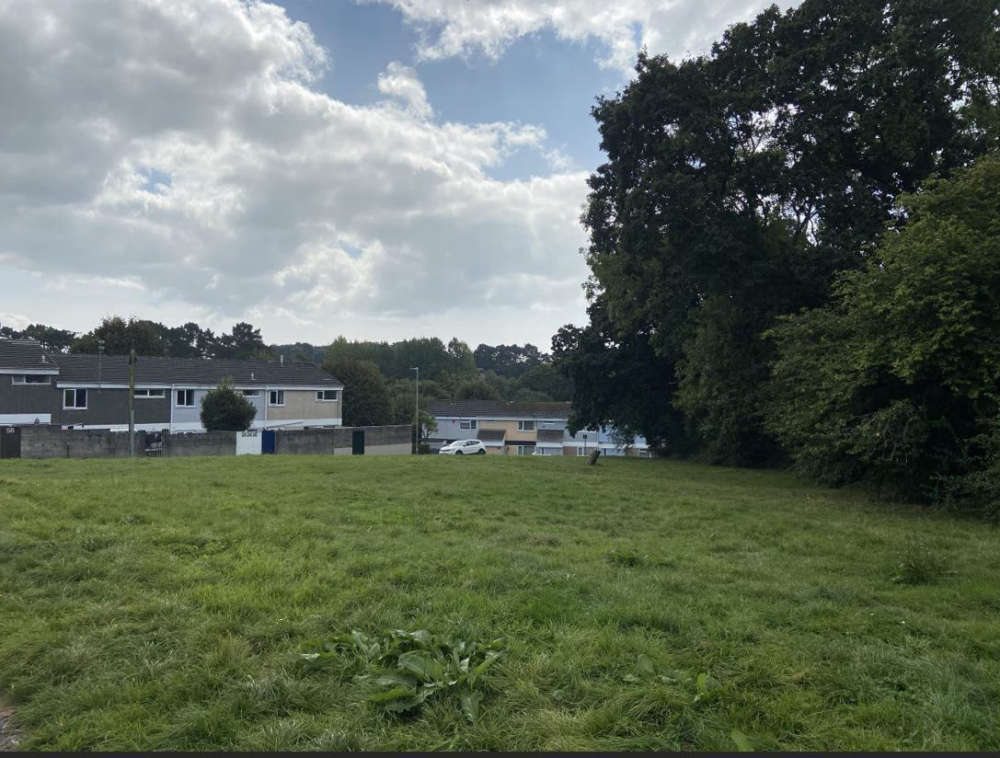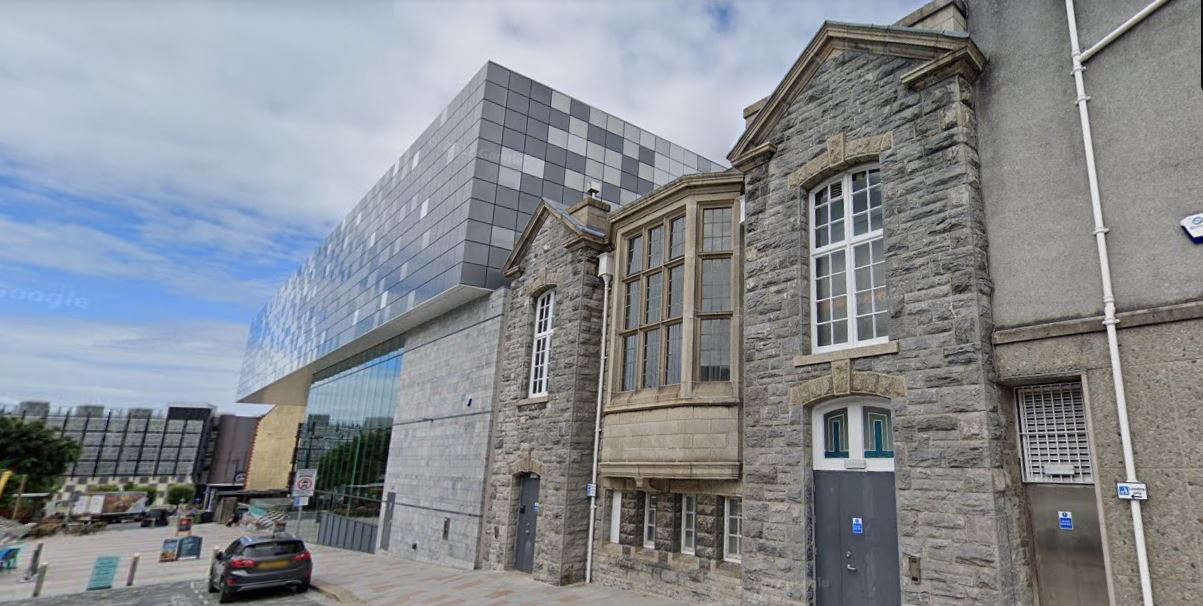
City planners say need for housing is too great
Residents in the Crownhill area of Plymouth have lost their battle to save a community green space, well used by children and the elderly, from development.
Plymouth City Council planners approved the 1,347 sq m site at Wilmot Gardens for five affordable homes after deciding that the need for properties in the city to help ease the housing crisis outweighed objections.
More than 50 letters against the plans by Classic Builders were submitted to the council with concerns about losing “the green lung” in a densely populated area of the city as well as five mature oak and ash trees.
Chairman of the planning committee Cllr Bill Stevens (Lab, Devonport) said no-one liked to see any green space of any size removed.
“No-one takes any delight in that but we have to balance it up against the need for housing in the middle of a very real housing crisis,” he said. ‘It doesn’t make for easy or pleasant decision making.
“There are people waiting for housing and I am expecting an awful lot of sites to come forward for development which will be tricky and it will cause controversy. Our job is to work through that maze, working with officers and listening to residents and applicants.”
The city currently has more than 7,000 people waiting for a home and hundreds in temporary accommodation. Under its Plans for Homes scheme Plymouth City Council intends to build 5,000 new homes in the city centre over the next five years.
A decision on the Wilmot Gardens application was deferred in August after councillors called for a tree survey to be conducted and the community’s use of the site assessed.
A arborist report concluded that ash dieback was well established in one of the trees and two others were showing symptoms of infection limiting their long term viability.
It was also established that the current layout of the scheme would result in root disturbance such that the trees were unlikely to survive.
A replanting scheme was proposed with 12 trees on site and 17 elsewhere at approved locations.
Planning officers said a request for a tree preservation order (TPO) made by residents six months ago would not alter their recommendation to approve the application as the quality of the trees had already been assessed.
Whilst concluding there was a loss of open space and it was used by children for play, dog walkers and others for sitting and relaxing, officers said the site was not of “sufficient quality” to be designated as greenspace and it had gone through a formal ‘loss of public space’ process when the land was disposed of by Plymouth City Council in 2019 to which there was just one objection.
And responding to councillors concerns that the location of a disabled parking bay was 20 metres away from a proposed ‘accessible’ property adapted for a disabled person, officers said the gradient was gentler there and fell within regulations.
The Crownhill Local Area Residents Association (CLARA) has been fighting plans to build on this land for three years.
CLARA secretary Matt Fleming said he was “highly disappointed” by the decision and did not rule out the organisation taking legal action against the council over some of the issues and the inaccuracies presented in the first report.
He said the council had not demonstrated that the green space was “surplus to requirements” and had not conducted a survey but relied on old data.
“How can there be any clarity on residents use of space without asking the residents themselves,” he exclaimed.
Children and other residents with mobility problems would now have to walk nearly half a mile to the next green space, which was almost double the distance of what was recommended in planning policy.
He disputed some of the evidence over the tree condition and said there would be a biodiversity loss of 48 per cent, a figure that was verified within a biodiversity net gain assessment, he said.
A previous application to build seven homes on the site in 2021 was withdrawn after opposition. Jason Battle from StudioJB Architectural Services, consultants acting on behalf of Classic Builders and Plymouth Community Homes, said the number of houses had been reduced and a lot of work done over the last few years to come up with a suitable proposal.
This included seven configuration plans to prevent tree loss and the impact on surrounding houses. Garden sizes and footpaths had been reduced and layouts of houses changed so a community garden could be created and as much green space retained as possible, he said.
Cllr Angela Penrose (Lab, Compton) said this application came down to balance and the figures of people waiting for a home in Plymouth were “frightening”.
The council’s housing team strongly support this application and she would be voting in favour too.
Cllr Sarah Allen (Lab, Peverell) said it was a shame that the accessible home was not fully wheelchair accessible and would be voting for the application with “a heavy heart” for that reason.
The proposal was agreed with 10 votes in favour and two abstentions.
 Kate Bush ‘heartbroken’ after friend lost at sea
Kate Bush ‘heartbroken’ after friend lost at sea
 Police investigate unexplained death near Chudleigh
Police investigate unexplained death near Chudleigh
 Major Devon to London rail disruption
Major Devon to London rail disruption
 Plymouth museum generates millions for economy
Plymouth museum generates millions for economy
 Exeter man wins £1 million on scratchcard
Exeter man wins £1 million on scratchcard
